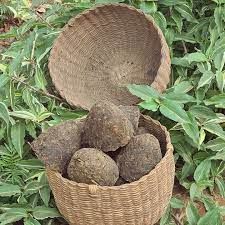
Food, nutrition and water insecurity impacts about 282 million people in Africa: why, what can our professions do as part of environmental work?
Africa is not on track to meet the Sustainable Development Goal (SDG) 2 targets to end hunger and ensure access by all people to safe, nutritious and sufficient food all year round, and to end all forms of malnutrition. The most recent estimates show that 281.6 million people on the continent, over one-fifth of the population, faced hunger in 2020, which is 46.3 million more than in 2019. This deterioration continues a trend that started in 2014, after a prolonged period of improving food security. In addition to hunger, millions of Africans suffer from widespread micronutrient deficiencies, while overweight and obesity are already significant public health concerns in many countries. Progress towards achieving the global nutrition targets by 2030 remains unacceptably slow.
FOOD AND AGRICULTURE ORGANIZATION (FAO), 2021
Why is the situation like this, and what has led to this situation? What is the solution?
Academics1 have argued that ‘modern agricultural systems that promote cultivation of a very limited number of crop species have relegated indigenous crops to the status of neglected and underutilised crop species (NUCS). The complex interactions of water scarcity associated with climate change and variability in sub-Saharan Africa (SSA), and population pressure require innovative strategies to address food insecurity and undernourishment. Current research efforts have identified NUCS as having potential to reduce food and nutrition insecurity, particularly for resource poor households in SSA. This is because of their adaptability to low input agricultural systems and nutritional composition. However, what is required to promote NUCS is scientific research including agronomy, breeding, post-harvest handling and value addition, and linking farmers to markets’, p. 1).
Africa has 30 000 NUCS, 7 000 used to be part of the diet of its communities but many are being forgotten, underutilised, or neglected and displaced by foreign crops through environmental colonisation. The major culprits and threats to NUCS are maize (which came from America), rice (from Asia) and wheat (from Europe). these crops were promoted during the industrial revolution in the 1950s as removers of hunger, poverty and malnutrition, but they are turning out to be the major drivers of poverty, environmental degradation, hunger and malnutrition.



Social workers, development workers and social development workers can help reset the current food systems, and turn back production towards NUCS instead of neglecting agrobiodiversity in favour of monoculture of maize wheat and rice — crops that lack resilience and vulnerable to climate and market shocks — the result being unsustainable food production that leads to hunger, vulnerability, poverty and inequality. This can be achieved by encouraging and helping students and researchers to research this area, students to do placement in this area of study and practitioners working and advocating in this in this area.
- Chivenge, Pauline, Tafadzwanashe Mabhaudhi, Albert T. Modi, and Paramu Mafongoya. 2015. “The Potential Role of Neglected and Underutilised Crop Species as Future Crops under Water Scarce Conditions in Sub-Saharan Africa” International Journal of Environmental Research and Public Health 12, no. 6: 5685-5711. ↩︎
Use the form below to subscibe to Owia Bulletin.
Discover more from Africa Social Work & Development Network | Mtandao waKazi zaJamii naMaendeleo waAfrika
Subscribe to get the latest posts sent to your email.




Maybe you can also write something about children´s protection in African countries (SDG 16.2.)?
Angelica
Thank you for the suggestion. We will do a blog on this topic.